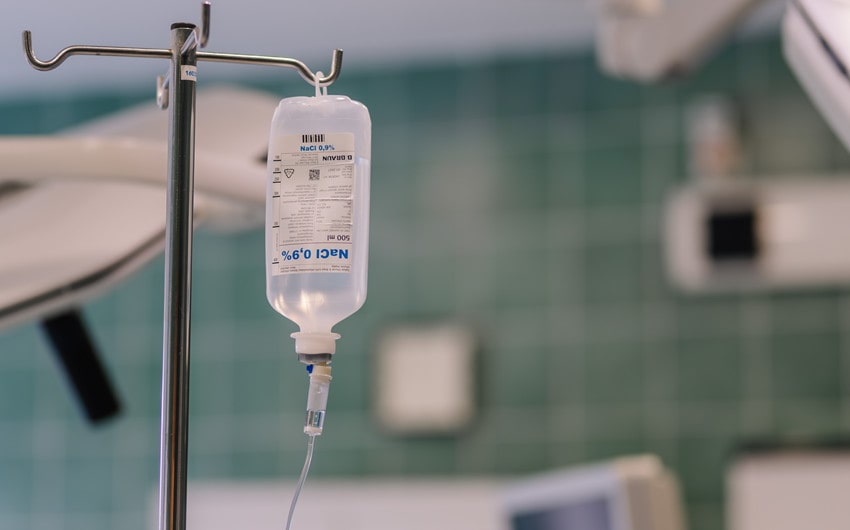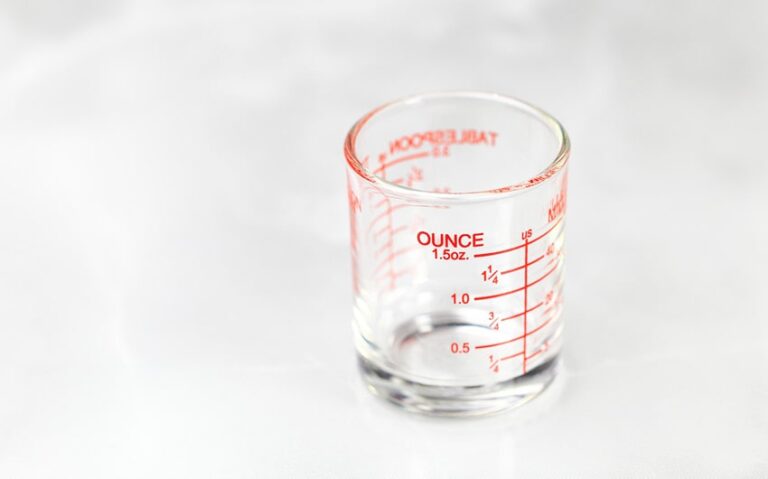IV Hydration: The Key to Rapid Recovery and Rehydration
If you’ve ever felt dehydrated or drained, you’ve likely wondered about faster ways to recover. IV hydration has become a popular solution for quickly replenishing fluids, electrolytes, and nutrients directly into your bloodstream. Whether you’re recovering from intense exercise, an illness, or even a hangover, this method offers rapid hydration that drinking water can’t always provide.
In this article, we’ll explore the benefits, common uses, and everything you need to know about IV hydration to see if it might be right for you.
What is IV Hydration?
IV hydration is a therapy that delivers fluids directly into your bloodstream through an intravenous (IV) line. This method bypasses the digestive system, allowing your body to absorb essential fluids, electrolytes, vitamins, and minerals much faster than drinking water. It’s commonly used in medical settings but has gained popularity for wellness purposes, offering a quick and efficient way to rehydrate and replenish nutrients.
A typical IV hydration solution contains a saline base mixed with electrolytes like sodium and potassium, along with optional vitamins or antioxidants depending on your needs. This therapy is often used to treat dehydration, support recovery after intense physical activity, or boost energy levels, making it a versatile option for those looking to enhance their health quickly.
Common Uses of IV Hydration
• Dehydration Recovery
One of the primary uses of IV hydration is for quick rehydration after dehydration caused by illness, heat exposure, or intense exercise. When you’re severely dehydrated, drinking water may not be enough to rapidly restore the fluids and electrolytes your body needs.
IV hydration provides a fast and efficient way to replenish lost fluids directly into your bloodstream. Whether it’s after a stomach virus, a marathon, or prolonged sun exposure, this method helps you recover faster, alleviating symptoms like dizziness, fatigue, and muscle cramps associated with dehydration.
• Hangover Relief
IV hydration is often marketed as a go-to solution for hangover relief. After a night of drinking, your body can become dehydrated due to alcohol’s diuretic effects, which lead to excessive fluid loss. This, combined with electrolyte imbalances, contributes to hangover symptoms like headaches, nausea, and fatigue.
IV hydration delivers fluids, electrolytes, and sometimes additional vitamins, like B-complex or vitamin C, directly into your bloodstream to help you feel better faster. Many people turn to this therapy as a convenient way to alleviate hangovers and restore their body’s balance.
• Nutrient Replenishment
IV hydration can also be used to deliver essential vitamins and minerals directly into your system, helping to boost overall wellness. This type of treatment is particularly popular for individuals looking to enhance their energy levels, improve immune function, or support skin health.
By bypassing the digestive system, IV therapy allows for higher absorption rates of nutrients such as vitamin C, B vitamins, magnesium, and antioxidants. Whether you’re feeling run-down or looking for an extra boost, IV hydration with added nutrients can help optimize your body’s performance.
• Medical Applications
In medical settings, IV hydration is commonly used for patients who are unable to drink enough fluids to maintain proper hydration. This could be due to illness, surgery, severe vomiting, diarrhea, or other conditions that prevent adequate fluid intake.
Hospitals rely on IV hydration to quickly rehydrate patients, stabilize their electrolytes, and support recovery. It’s a critical intervention for those who are at risk of dehydration due to health complications and ensures that fluids and nutrients are delivered efficiently when oral intake isn’t possible or sufficient.

Benefits of IV Hydration
• Rapid Hydration
One of the key benefits of IV hydration is how quickly it works to rehydrate your body. Since the fluids are delivered directly into your bloodstream, they bypass the digestive system, allowing for immediate absorption. This means you can achieve full hydration much faster than by drinking water alone.
Whether you’re dehydrated due to illness, exercise, or heat, IV hydration provides a rapid solution that quickly restores your body’s fluid balance, often in under an hour. This is especially helpful when you need fast relief from dehydration symptoms like fatigue, headaches, and dizziness.
• Electrolyte Balance
In addition to fluids, IV hydration helps replenish electrolytes—essential minerals like sodium, potassium, calcium, and magnesium—that your body loses through sweat, vomiting, or diarrhea. Maintaining proper electrolyte balance is crucial for muscle function, nerve signaling, and overall hydration.
When you’re dehydrated, especially after intense physical activity or illness, your body’s electrolyte levels can become depleted, leading to symptoms such as muscle cramps, weakness, or confusion. IV hydration restores these vital minerals quickly, allowing you to recover more effectively than with water alone.
• Boosts Energy Levels
IV hydration can also help improve your energy levels, especially when it includes added vitamins and nutrients. Many IV hydration treatments include B vitamins, magnesium, or other energizing nutrients that play a role in cellular metabolism and energy production.
Whether you’re recovering from physical exhaustion, jet lag, or feeling run-down, the infusion of fluids and vitamins through IV therapy can provide a much-needed energy boost. The direct delivery into your bloodstream ensures that these nutrients are absorbed quickly and efficiently, giving you a revitalizing effect that drinking water or taking oral supplements may not provide as rapidly.
• Supports Immune Function
Some IV hydration treatments are designed to boost your immune system, often by including high doses of vitamin C or other immune-supporting nutrients. Vitamin C, for example, is a powerful antioxidant that helps protect cells from damage, strengthens your immune response, and promotes healing.
IV hydration allows for higher doses of these nutrients to be delivered directly into the bloodstream, which can be especially beneficial during times of illness or when your immune system is under stress. By enhancing your body’s ability to fight off infections and recover faster, IV hydration can be a useful tool in supporting your overall health.
• Improves Skin Health
Proper hydration is essential for maintaining healthy, glowing skin, and IV hydration can offer benefits for your complexion. When your body is well-hydrated, your skin is more likely to retain moisture, which helps it look smoother, plumper, and more vibrant. Additionally, many IV hydration treatments include vitamins and antioxidants like vitamin C or glutathione, which can promote collagen production, reduce signs of aging, and protect the skin from oxidative damage.
By delivering hydration and nutrients directly into your bloodstream, IV therapy can help improve your skin’s appearance more quickly and effectively than topical treatments or drinking water alone, giving you a natural, radiant glow.
Who Should Consider IV Hydration?
• Athletes
IV hydration has become increasingly popular among athletes, especially those engaged in endurance sports or high-intensity training. After intense physical activity, athletes lose significant amounts of fluids and electrolytes through sweat, which can lead to dehydration and decreased performance. IV hydration offers a quick and efficient way to restore these lost fluids and electrolytes, helping athletes recover faster and avoid symptoms like muscle cramps, fatigue, and dizziness.
In addition to rehydration, many IV treatments also include vitamins and minerals to boost energy levels and aid in muscle recovery, making it a favored option for athletes who need to get back to peak performance quickly.
• People Recovering from Illness
If you’ve ever had the flu, food poisoning, or a stomach virus, you know how quickly dehydration can set in due to vomiting, diarrhea, or fever. IV hydration is often recommended for people recovering from these illnesses because it allows the body to rehydrate faster than drinking water alone.
For those who can’t keep fluids down due to nausea, IV hydration is an especially valuable solution. It helps replenish both fluids and electrolytes lost during illness, speeding up recovery and reducing symptoms like fatigue and weakness. This makes it a practical option for people looking to regain their strength and hydration levels after being sick.
• Busy Professionals
With the demands of modern life, many busy professionals often find themselves running low on energy or feeling dehydrated, especially if they’re juggling long work hours, travel, or stressful schedules. IV hydration has been marketed as a quick and effective way for busy individuals to boost their energy levels and recover from burnout.
By delivering a combination of fluids, electrolytes, and energy-boosting vitamins like B12 directly into the bloodstream, IV therapy helps busy professionals rehydrate and feel revitalized without the downtime required for rest and recovery. It’s a convenient solution for those with packed schedules who need to recharge quickly.
• People with Chronic Conditions
For individuals who suffer from chronic conditions like migraines or chronic dehydration, IV hydration can offer significant relief. Migraine sufferers, in particular, often experience dehydration as a trigger or a side effect of their headaches, and IV hydration can help manage these symptoms by quickly restoring fluid balance and providing pain-relieving nutrients like magnesium.
Similarly, people with chronic dehydration, whether due to medical conditions or poor fluid retention, can benefit from regular IV hydration treatments to maintain proper hydration levels and prevent complications like dizziness, muscle cramps, or fatigue. This therapy offers an efficient way to manage their hydration needs without relying solely on oral intake, which may not be sufficient or easily absorbed for some individuals.
Are There Any Risks or Side Effects?
• Possible Side Effects
While IV hydration is generally safe, there are some mild side effects that can occur during or after the treatment. The most common side effects include bruising or discomfort at the IV insertion site. It’s normal to feel a slight pinch when the needle is inserted, and mild soreness or bruising can develop afterward.
Some people may also experience lightheadedness or dizziness, particularly if they’re dehydrated or anxious about the procedure. These side effects are usually short-lived and resolve on their own shortly after the treatment.
• Potential Risks
Although rare, there are more serious risks associated with IV hydration therapy. One potential risk is infection at the IV site, which can occur if the insertion area isn’t properly cleaned or if the equipment isn’t sterile. Another risk is an allergic reaction to the ingredients in the IV solution, particularly if vitamins or medications are added. Symptoms of an allergic reaction might include itching, swelling, or difficulty breathing, and immediate medical attention would be required.
There’s also a risk of fluid overload, especially in people with kidney or heart conditions. Fluid overload occurs when too much fluid is introduced into the body, putting stress on the heart and kidneys, which can lead to complications like swelling, difficulty breathing, or heart failure.
• Consulting a Doctor
Before starting IV hydration therapy, it’s important to consult with a healthcare provider to ensure it’s safe and appropriate for your needs. This is especially crucial if you have underlying medical conditions such as heart disease, kidney problems, or if you are pregnant. A doctor can help determine if IV hydration is a good fit for you and whether any modifications are needed based on your health profile.
Additionally, they can advise on the safety of the ingredients in the IV solution, helping you avoid any potential allergic reactions or interactions with medications you might be taking.
How Often Should You Get IV Hydration?
• Occasional vs. Regular Use
The frequency of IV hydration treatments depends largely on your individual needs and lifestyle. For most people, occasional use is sufficient, particularly after a period of dehydration from illness, intense exercise, or travel. Occasional treatments are great for short-term recovery or for addressing temporary dehydration.
For instance, athletes might use IV hydration after a marathon, or someone might opt for a session after a long night out to relieve a hangover. These one-time treatments can be beneficial for quickly restoring hydration and boosting energy levels without the need for frequent sessions.
However, some individuals may consider regular IV hydration treatments, especially if they have chronic conditions like migraines, fibromyalgia, or persistent dehydration issues. For these people, regular sessions could help maintain optimal hydration levels, reduce symptoms, and improve overall wellness. Regular treatments should always be overseen by a healthcare provider to ensure that they’re necessary and safe.
• Personalized Hydration Plans
Ultimately, the decision on how often to get IV hydration should be tailored to your unique needs and lifestyle. Factors such as your physical activity level, climate, and health status will influence how often you may benefit from IV hydration.
If you live in a hot climate or engage in frequent strenuous activity, you might find more regular treatments helpful to keep dehydration at bay. On the other hand, if your hydration needs are minimal, occasional sessions may be more than enough.
A healthcare provider can help you develop a personalized hydration plan that balances your body’s needs without overdoing it. They’ll take into account factors like your medical history, activity level, and any specific wellness goals you have, ensuring that your IV hydration treatments are optimized for your health and safety.







